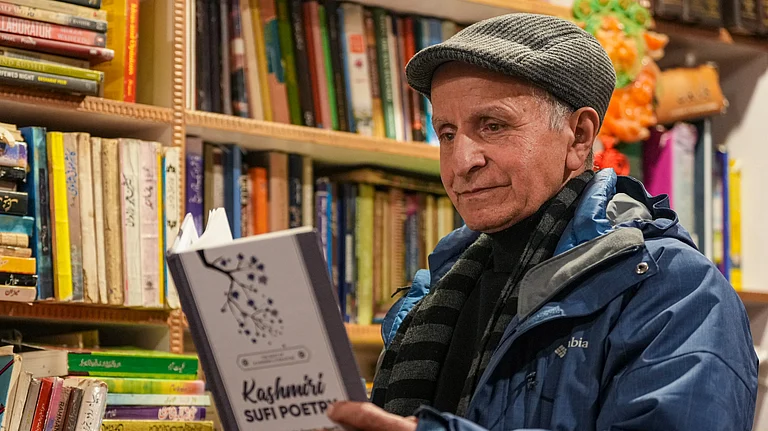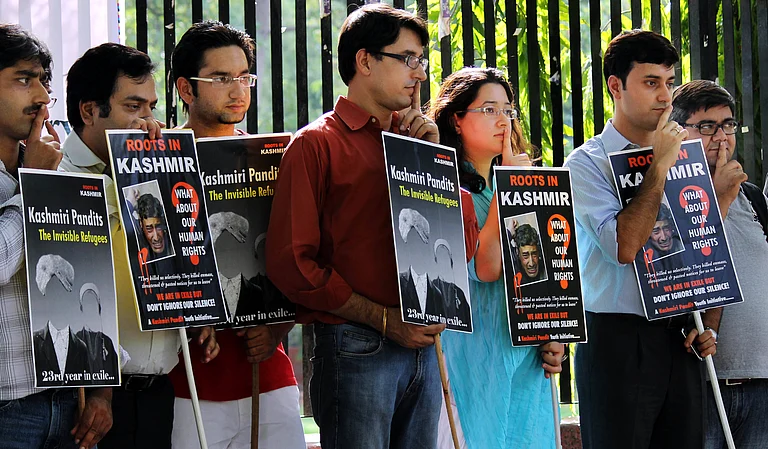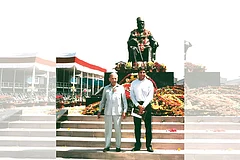This story was published as part of Outlook's 1 November, 2024 magazine issue titled 'Bittersweet Symphony'. To read more stories from the issue, click here
The recent Jammu and Kashmir (J&K) electoral verdict is a moment not for celebration, but for deep reflection—particularly for the political leadership in Kashmir, and most notably for the National Conference (NC). If the electoral success is interpreted solely as a win for the party, with the focus shifting towards rewarding loyal supporters, it would mark a grave miscalculation. The people of J&K, especially in the Kashmir region, are not simply looking for political victors—they are yearning for a government that truly engages with their realities and addresses their concerns. Years of governance by an unresponsive and distant bureaucracy have left them feeling abandoned, with no one to empathise with their daily struggles. This sense of alienation has significantly shaped the way people voted, but the election is not just a moment of frustration—it carries a much deeper political significance. The message from the people is clear, and it is now the NC’s responsibility to decode and align itself with that message.
This victory is not a vote of confidence in the NC as an institution, but rather a manifestation of a broader political movement—a “people’s politics” that transcends party lines. Many voters likely cast their ballots for the NC, not because of any longstanding allegiance, but because they saw it as the most viable platform through which they could express their political will. The leadership of the NC must now recognise this trust as a mandate for transformation and renewal.
A key issue that the NC must confront head-on is the restoration of Article 370 and statehood for J&K. While Omar Abdullah recently acknowledged that achieving the restoration of Article 370 in the current setup is not feasible, this does not mean the party should abandon its commitment to this cause. The NC must remain a strong advocate for both the restoration of special status and the return of full statehood, as these are not only legal demands, but deeply tied to the identity and aspirations of the people.
The path to meaningful and inclusive politics has opened, and it is essential to proceed with cautious optimism, engaging more people from diverse regions and communities.
However, as Abdullah indicated, achieving these objectives in the current political climate will be a long-term challenge. To navigate the current realities, where significant power rests with the Lieutenant Governor, the NC could benefit from seeking advice from experienced leaders like Arvind Kejriwal, who has successfully governed Delhi, a state with similar power dynamics. Kejriwal’s experience in running a government where the Lieutenant Governor holds significant authority could provide valuable insights for the NC in managing the complexities of governance under similar constraints.
It is essential for the NC to recognise that while it must continue to push for the restoration of Article 370 and statehood, it must also address the immediate challenge of running a state where much of the power lies with the Lieutenant Governor. Balancing these long-term goals with the practicalities of governance will be crucial for the party’s success. Failure to do so could result in further alienation of the people and undermine the party’s credibility.
On the political front, the NC must also critically examine the divisive rhetoric it has sometimes employed. While it positions itself as the defender of the Kashmiri identity, it must ensure that this narrative does not alienate other communities within J&K or across India. The party should focus on inclusive politics, promoting dialogue and understanding between Kashmiri Muslims, Pandits and the broader Indian society. Rather than framing its politics as a battle between “us” and “them”, the NC should lead efforts to bridge divides and foster unity.
The party must avoid reactionary politics that oppose the Centre without offering constructive alternatives. It must be willing to engage in a meaningful dialogue with the Union government, positioning itself as a responsible player in the Indian federal system. Abdullah has the potential to serve as a bridge between Kashmir and the rest of India, dispelling myths and misconceptions while advocating for the rights and dignity of the Kashmiri people.
The NC must also redefine its approach to secularism. While secularism has long been a cornerstone of its ideology, the party must ensure that its messaging around secularism does not alienate its core Muslim electorate. Instead of using secularism as a political slogan, the party should focus on fostering justice, equality and mutual respect for all communities in J&K.
Although this election reflects the voices of a relatively small segment of the Kashmiri population, the potential for a larger wave of political transformation in India remains very real. The NC must commit itself to nurturing that potential by promoting broader conversations—within Kashmir and across the country. The party must emphasise that Kashmiri Muslims are neither enemies of Kashmiri Pandits nor of Hindus elsewhere in India. The image of violence and instability that dominates perceptions of Kashmir, perpetuated by ideological biases and media narratives, must be addressed with care. It will take more than internal messaging to counter these misconceptions.
This election must not be seen as an isolated event, but as the beginning of a new political process. The path to meaningful and inclusive politics has opened, and it is essential to proceed with cautious optimism, engaging more people from diverse regions and communities. The NC has a unique opportunity to lead this journey—one that transcends divisions and works towards building a future of unity, peace and understanding.
(Views expressed are personal)
MORE FROM THIS ISSUE
Ramiz Bhat is a freelance journalist who specialises in political analysis
(This appeared in the print as 'Time to Abrogate Bitterness')




























